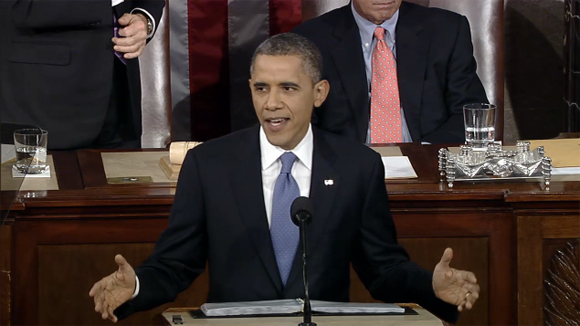Suspicious of CISPA, White House brandishes veto threat
Stop CISPA petitions may have influence one branch of government

President Obama will likely veto the controversial Cyber Intelligence Sharing Protection Act (CISPA) cybersecurity bill if it's passed by Congress because it lacks adequate privacy protections, the White House said today.
"The Administration still seeks additional improvements and if the bill, as currently crafted, were presented to the President, his senior advisors would recommend that he veto the bill," read the statement.
The White House, in its official response to CISPA' approval by the U.S. House Intelligence Committee, stressed that the government and private companies still need cyber threat information.
"Carefully updating laws to facilitate cybersecurity information sharing is one of several legislative changes essential to protect individuals' privacy and improve the Nation's cybersecurity."
CISPA vs 'civilian spheres'
The concern, in the eyes of the White House, is that the bill doesn't require private companies to remove irrelevant personal information when sending cybersecurity data to the government.
"Citizens have a right to know that corporations will be held accountable – and not granted immunity – for failing to safeguard personal information adequately."
As if this language didn't already imply ACLU, the the the White House topped off its statement with a commitment to view the web as a "civilian sphere."
Get daily insight, inspiration and deals in your inbox
Sign up for breaking news, reviews, opinion, top tech deals, and more.
"The Administration supports the longstanding tradition to treat the internet and cyberspace as civilian spheres."
Senate CISPA passage unlikely
Obama might not have to use his veto pen after all, as CISPA is unlikely to be passed by the Democrat-controlled Senate.
This is because the first version of CISPA never made it through the Senate last year after being passed by the U.S. House of Representatives in April 2012.
So, even if CISPA 2.0, as it's come to be known, is approved by the House this week, there little chance it will make it beyond that point as the bill text is written today.
